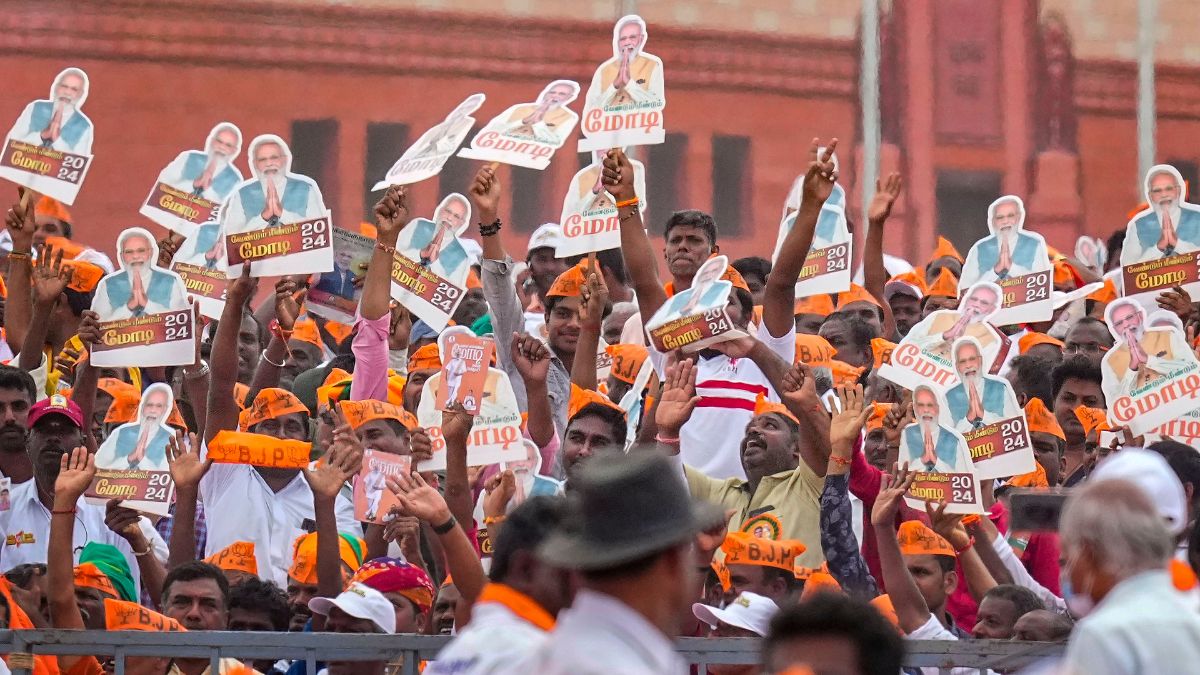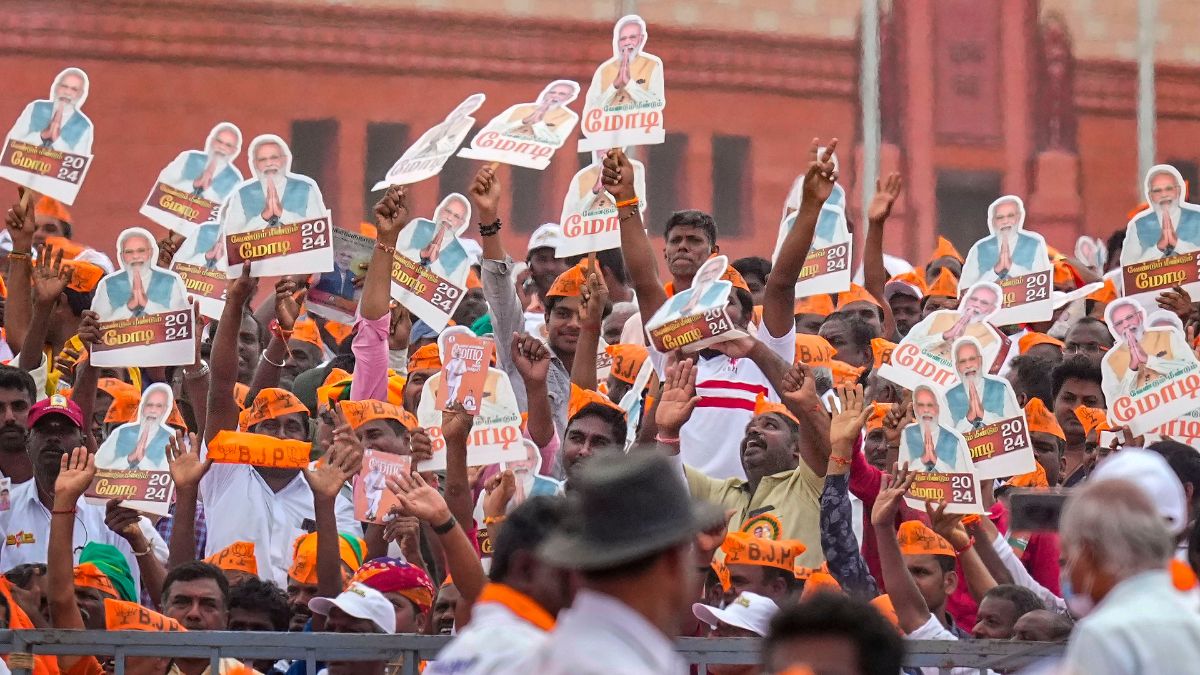By Jagdeep S Chhokar
“For the reasons extensively highlighted in the preceding paragraphs, we have no hesitation in arriving at the view that prima-facie the acts of the respondents inter-se, as highlighted in the present petition, clearly fall foul of the ban imposed under the Foreign Contribution (Regulation) Act, 1976 as the donations accepted by the political parties from Sterlite and Sesa accrue from ‘Foreign Sources’ within the meaning of law.”
These are the words of the Delhi High Court on 28 March, 2014, in relation to foreign funds being directed at Indian political parties.
The “respondents” referred to in paragraph 73 of the judgment reproduced above were the Indian National Congress (Congress) and the Bharatiya Janata Party (BJP).
The very next paragraph of the judgment gave clear instructions to two authorities to “take action as contemplated by law”, and to do that in a specified time frame, “within a period of six months from date of receipt of certified copy of the present decision.”
“The second direction would concern the donations made to political parties by not only Sterlite and Sesa but other similarly situated companies/corporations. Respondents No 1 and 2 would relook and reappraise the receipts of the political parties and would identify foreign contributions received by foreign sources as per law declared by us herein above and would take action as contemplated by law. The two directions shall be complied within a period of six months from date of receipt of certified copy of the present decision.”
Respondent No.1 was the Union of India (UoI), and Respondent No.2 was the Election Commission of India (ECI).
The petition, a Public Interest Litigation (PIL), referred to donations received, and declared, by the Congress and the BJP which could be traced to “Foreign Sources”, an action that violated the Foreign Contribution (Regulation) Act, (FCRA), 1976. Section 4(1)(e) of the FCRA prohibits political parties from accepting any foreign contributions. It says “(1) No foreign contribution shall be accepted by any - (e) political party or office-bearer thereof.”
How action is taken but not taken
Presumably, since the court had laid down six months for action to be taken, the ECI wrote a letter (D.O. No. 56/CR/2012-PPEMS/858) to the Home Ministry (addressed by name to Anil Goswami, Secretary, Home) on 24 July, 2014. After giving the background, the letter concluded:
“I would like to impress upon the gravity of the matter and its urgency, as the deadline allowed by the Hon’ble Court expires in the month of September 2014. The final report on the matter with clear findings of the team may be sent to the Commission by 25th August 2014, so that action if any can be taken by the Commission within the time frame allowed by the Hon’ble High Court.”
The Home Ministry responded on 11 September, 2014 [F. No. II/21022/58(647)/2012-FCRA(MU)>, referring to an earlier letter of 20 August, 2014, “wherein names of companies falling under the category of ‘foreign source’, who have donated to Political parties namely, Indian National Congress and Bharatiya Janata Party during the years 2006-7, 2007-8 and 2010-11 were intimated,” and saying the following:
“Subsequently, Ministry of Corporate Affairs has also provided the names of companies having more than 50 percent foreign holding, who have donated to above said Parties during the years 2008-09 and 2009-10 etc. The consolidated information of all the five years in respect of donations from ‘foreign sources’ to Indian National Congress and Bharatiya Janata Party is now given as under:-”
What was “given under” was a list of companies, the percentage of foreign holdings, and the amounts they had contributed to the Congress and the BJP.
This is where the matter rested, and rests still. In the meantime, both parties filed appeals in the Supreme Court against the decision of the Delhi High Court, the Congress on 26 June, 2014, and the BJP on 26 August, 2014. It is worth pointing out that the Supreme Court has not stayed the decision of the High Court, and therefore both the Congress and the BJP are still legally guilty of having violated the FCRA.
What could and should have been done
Since the High Court judgment holds that both the political parties are in violation of the FCRA, the “action as contemplated by law” can only be taken under the FCRA. Section 12 of the FCRA, 1976, gives the “power to prohibit payment of currency received in contravention of the Act” to the central government. The FCRA contains the following provisions for penalty for violating the law:
- Section 22 of FCRA provides “penalty for article or currency obtained in contravention of Section 12” which can be “imprisonment for a term which may extend to three years, or with fine, or with both.”
- Section 23 provides “punishment for the contravention of any provision of the Act”, saying “whoever accepts, or assists any person, political party or organisation in accepting any foreign contribution or any currency from a foreign source, in contravention of any provision of this Act or any rule made thereunder, shall be punished with imprisonment for a term which may extend to five years, or with fine, or with both.”
The website of the Ministry of Home Affairs shows FCRA to be a part of its Foreigners Division . It therefore stands to reason that any action for violation of the FCRA falls under the jurisdiction of the Home Ministry. Why the Home Ministry, as part of Respondent No.1, Union of India, responsible for administering FCRA, not “relook and reappraise the receipts of the political parties and … identify foreign contributions received by foreign sources as per law declared by us (the High Court) herein above and … take action as contemplated by law … within a period of six months from date of receipt of certified copy of the present decision,” and merely forwarded a list of such companies to Respondent No.2, the ECI, remains a matter of conjecture.
The action actually being taken
The latest report of the action actually being attempted comes from a news report in The Economic Times which says that “the latest changes (to the FCRA) being suggested by the home ministry include allowing foreign contributions from companies in sectors where foreign direct investment is allowed.”
Moreover, a proposal for amending the FCRA so that foreign companies registered in India can contribute to parties from their corporate social responsiblity fund is reported to have been sent to the law and finance ministries for their comments.
It seems it is not the first time such a proposal has been floated. The ET report quotes officials saying that an earlier suggestion for calling any company registered in India as an ‘Indian company’ was turned down.
The proposal for allowing corporate social responsibility (CSR) funds to be donated to political parties is a standard red herring. When the Companies Act 2013 specified that certain large net worth companies, with significant profits, will be required to spend a specified percentage of their profits on CSR activities, there was much debate on whether contributions to political parties should be included in permitted CSR activities. It was after this extensive debate that contributions to political parties were kept out of the list of approved CSR activities. The inclusion of contributions to political parties in CSR seems to have been proposed to deflect attention away from foreign contributions.
Precedents of defeating the law for political purposes
This is not the first time that attempt is being made to frustrate the law to achieve politically expedient ends. It has been going on for a long time, at least since 1974, and has been done by all political dispensations. A couple of examples should suffice.
In the Kanwarlal Gupta vs Amar Nath Chawla case, (1975) 3 SCC 646, the Supreme Court held that under Section 77 of the Representation of the People Act, 1951, (RP Act), expenditure incurred by the “friends, relatives, and supporters” of a candidate at the time of elections should be counted as expenditure incurred by the candidate and be accounted as such. The court observed, “This is the only reasonable interpretation of the provision which would carry out its object and intendment and suppress the mischief and advance the remedy by purifying our election process and ridding it of the pernicious and baneful influence of big money.”
Soon after the above judgment, the Cabinet recommended and the President of India issued an Ordinance amending the section 77 by inserting Explanation 1 in sub-section (1) of section 77. Subsequently, Amendment Act 58 of 1974 was enacted in terms of the said Ordinance and was given retrospective effect on and from 19 October, 1974, not surprisingly, the date of the judgment.
Commenting of the above sequence of events, the Law Commission of India observed, in its 170th report, “The aforesaid amendments have the effect of nullifying the object and purpose underlying section 77(1) read with section 123(6) of the Act. The amendments create an escape clause and have provided an easy way of circumventing the legal requirement. Not only the political party which has sponsored the candidate, but the friends, relatives and supporters of a candidate can spend any amount on the election of the candidate and yet all the amount would not fall within the expenditure incurred by the candidate or his agent.”
A feeble attempt was made to close this loophole in 2003 under sustained public pressure but other loopholes were introduced.
The second example concerns disclosure of criminal cases pending against candidates contesting elections to the Parliament and state assemblies. This also started with a PIL filed in December 1999 in the Delhi High Court asking for declarations by election candidates of their criminal, financial, and educational antecedents. The Delhi HC upheld the request in a judgment delivered on 2 November, 2000.
However, the Union of India appealed to the Supreme Court against the Delhi HC judgment. In a judgment delivered on 2 May, 2002, the Supreme Court upheld the Delhi HC judgment.
This is when the political establishment swung into action. Twenty two political parties decided, in an all-party meeting, on 8 July, 2002, that the SC judgment will not be allowed to be implemented. It was decided to amend the RP Act to nullify the SC judgment. It was done, first by an Ordinance, and then by passing an Act in the Parliament, unanimously. The amendment was challenged in three PILs in the Supreme Court and was struck down as “unconstitutional” and “null and void” by the Supreme Court in a judgment on 13 March, 2003.
In the first case, of Section 77, the Congress formed the government whereas in the second case, it was an NDA government, led by the BJP.
The latest instance is of six national political parties blatantly defying the decision of the Central Information Commission, declaring them as “public authorities” under the Right to Information Act (RTI Act). That matter is also in the Supreme Court where the Union of India has given an affidavit saying political parties should not be covered by the RTI Act. The current case of trying to get political parties out of the FCRA seems to be following a familiar trajectory. It remains to be seen how it plays out.
(The author is a former professor, dean, and director-in-charge of IIM-Ahmedabad, and a founder-member of the Association for Democratic Reforms, one of the petitioners in the Delhi High Court. Views are personal.)


)




)
)
)
)
)
)
)
)